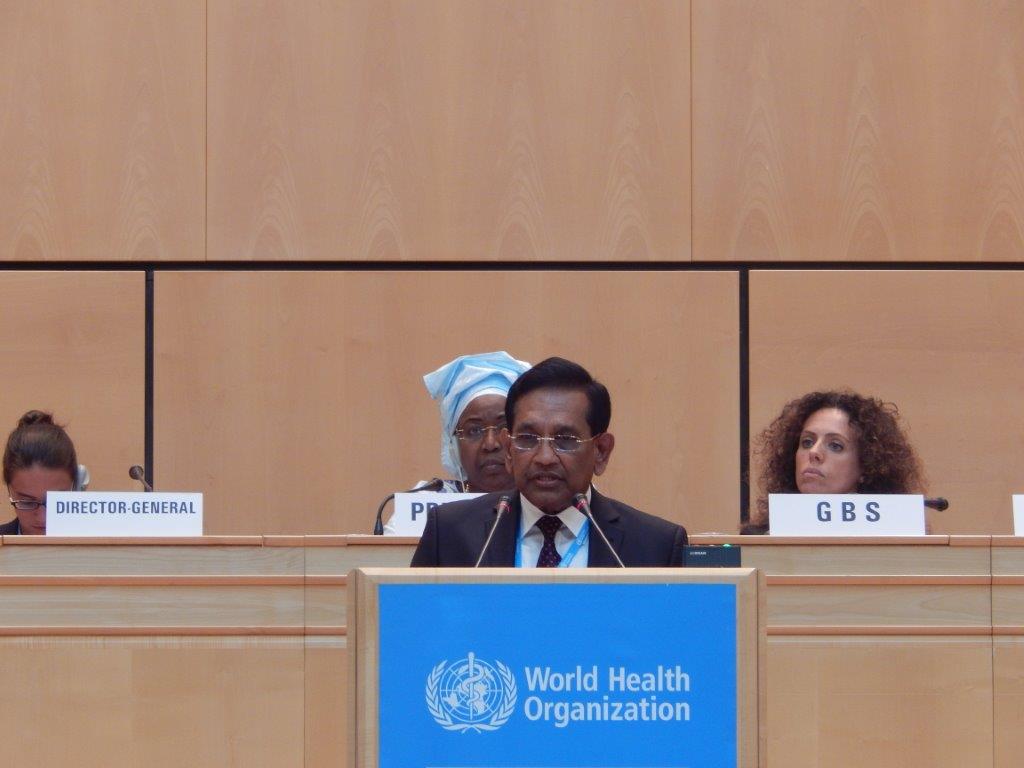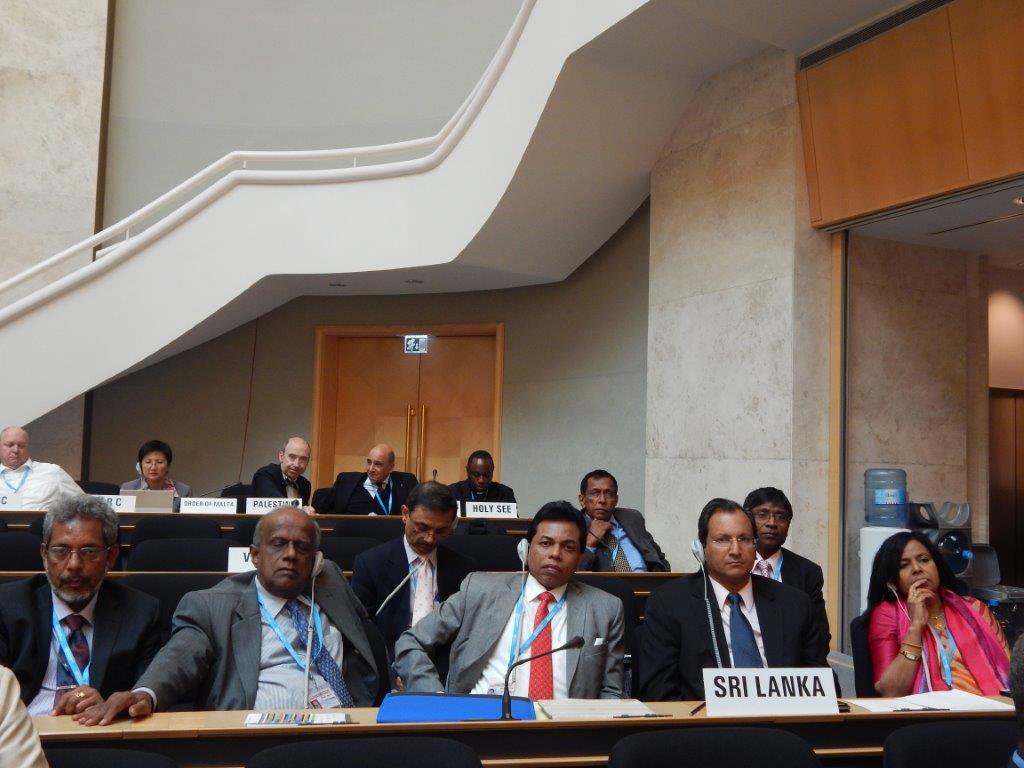
Minister of Health and Indigenous Medicine Dr. Rajitha Senaratne addressed the 68th World Health Assembly held in Geneva on 19th May 2015 and highlighted the progress Sri Lanka has made in achieving the Millennium Development Goals and universal health coverage, particularly with respect to Maternal & Child Health and the control of communicable diseases.

Highlighting the health scenario in the country he said that under the guidance of President Maithripala Sirisena, the country is poised to enter a new phase of health development and pointed out that the health burden of the country is now moving more towards non communicable diseases, such as cardiovascular, respiratory neoplasm and diabetes, which account to over 70% of deaths.
Addressing the Assembly, Chancellor of the Federal Republic of Germany Angela Merkel, praised the role of the WHO and said "The WHO is the only international organization that has universal political legitimacy on global health issues,”. The meeting was also addressed by Hon. Jagat Prakash Nadda, President WHA, Dr. Margaret Chan, DG/WHO and a large number of Health Ministers from Member countries from all over the world.
Permanent Mission of Sri Lanka
Geneva
22 May 2015
Full text of Address by Hon. Dr. Rajitha Senaratne, Minister of Health and Indigenous Medicine of Sri Lanka
“Building Resilient Health Systems”
Plenary Statement by Hon. Dr. Rajitha Senaratne,
Minister of Health and Indigenous Medicine of Sri Lanka
68th World Health Assembly
18th – 26th May 2015 Geneva
While associating myself with the
I also wish to take this opportunity to thank Dr. Margaret Chan, Director General of WHO and Dr. Poonam Singh our Regional Director, for their continuing guidance and support to the development of the Health Sector in
The active role played by the WHO in bringing all the countries to a common platform to fight disease and promote health, has been truly remarkable and in fact commendable.
Under the guidance of our newly elected President Maithripala Sirisena, who was in fact the Minister of Health until early this year, we are poised to enter a new phase of health development entwined with new challenges. As in many other countries in the region, in my country too, the health burden is now moving more towards non communicable diseases (cardiovascular, respiratory neoplasm and diabetes), which account to over 70% of deaths, while, Injuries and mental health issues are also becoming significant. These are resource intensive, and hence we are planning to increase our health budget significantly, and also to strengthen our partnerships.
We have eradicated polio over two decades back in 1992, and the last indigenous case of malaria was reported in October 2012.
When it comes to a resilient health system,
Today,
We have just established a New Medicines Regulatory Authority to ensure the quality of medicines and devices and make them available at affordable prices.
Meanwhile,
This was undertaken in line with the recommendations of the 61st WHA in 2008. The assessment brought together active engagement of diverse institutions and ministries for identification of clear and implementable policy recommendations for health products innovation.
In conclusion, I would like to thank the WHO’s for its role as the leading global health authority. We are proud and ready to be associated with the WHO and other international global health promoters, as a trusted partner in global health development.
THANK YOU.




